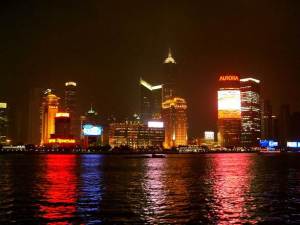China’s ‘One Belt, One Road’ – A drive for Great British business?
Barry Piper, Faithful+Gould’s Chief Operating Officer, Industry, Asia Pacific, shares his thoughts on OBOR and its opportunities for British business.
Theresa May remains firm that Britain stays committed to its “golden era” of relations with China, as she and Philip Hammond continue to court Chinese investors, following in the footsteps of David Cameron and George Osborne.
However, many of us are left wondering what is next? President Xi Jinping believes it is his ‘One Belt, One Road’ initiative (OBOR), which will transform China, and open up new opportunities for Great British business.
More than 2,000 years ago, China’s imperial envoy Zhang Qian established a network of trade routes from China to Europe via Asia, Africa and Arab. Named after one of China’s most valuable export – silk – the Silk Road has played a significant role in shaping political and economic relations between countries located on the route and helped develop the backbone of what the British Empire was.
Trumpeted regularly throughout last year by the Chinese government, OBOR aims to foster trade and investment growth by creating a continuous trade and investment network that stretches from East, Central and South Asia to UK and Europe, through to the Middle East and Africa. It is an extensive Chinese economic development zone that spans 65 countries.
A view of the Pudong skyline.
President Xi also launched OBOR’s USD50 billion sister, the Asian Infrastructure Investment Bank (AIIB), which, together with the Silk Road Fund and the New Development Bank, will fund and finance new infrastructure projects along the OBOR. The first western ally to sign up with AIIB was Britain with investments of up to £40 million – a clear indication of the nation’s intention to remain as China’s ‘golden’ partner.
OBOR and the banks demonstrate China’s commitment to free trade and open markets, which President Xi, an advocate of globalisation, emphasised at the World Economic Forum’s Annual Meeting in Davos in January this year.
Many of the OBOR countries that are modernising their economies will have a need for roads, railways, ports, airports, pipelines, energy, information infrastructure, etc. either now or over the coming years to move up the value chain as well as support the fast growing population and urbanisation. This could bring billions in Chinese investment to Britain and Great British businesses.
China has signed bilateral cooperation agreements with Hungary, Mongolia, Russia, Tajikistan, and Turkey. Projects such as the freight train transport, which connects eastern China to 15 European cities including London, commenced in January this year. There are also new rail links to Laos and Thailand and high-speed rail projects in Indonesia. China’s Ningbo Shipping Exchange is collaborating with the Baltic Exchange on a container index of rates between China and the Middle East, the Mediterranean, and Europe. China’s state rail contractor signed construction deals in Africa worth USD5.5 billion. More than 200 enterprises have signed cooperation agreements for projects along OBOR’s routes. These projects are just the start. OBOR will also see the development of six major economic corridors, including the New Eurasian Land Bridge, China-Mongolia-Russia, China-Central Asia-Western Asia, Indo-China Peninsula, China-Pakistan, which last year announced USD46 billion in OBOR investments, and Bangladesh-China-India-Myanmar.
But this is more than just physical infrastructure. It is also about softer economic cooperation, policy coordination, trade and financing collaboration, and social and cultural cooperation. By connecting and enhancing the productivity of countries on the OBOR, China hopes that the shared benefits will strengthen and expand friendships.
So I encourage Great British business to see this as an opportunity to share our expertise in financial services, public-private partnerships, legal, design, engineering, construction, supply chains and much more, just as we did for projects in Asia and Africa in the 19th century. The Great British business and its professional services have grown over the last 10 or even 20 years because of the growth in China and Asia, and even before that if we consider the Arab and African worlds.
We have been exporting Great British expertise – that is how we created the British Empire! Great Britain is poised to take advantage, poised to take its expertise and poised to go into OBOR countries and naturally replicate the same story. I am confident we can once again overcome the challenges of language, culture, traditions, legal systems and doing business in new countries.
It’s easy to argue why OBOR won’t work. The economics are questionable. The geographic coverage is unachievable. The financial returns won’t be attractive. And China is facing its economic transition and may get distracted away from OBOR while domestically trying to sort them out.
But the long-term fundamentals of China’s economy are sufficiently strong that we should keep believing in it. OBOR offers an exciting and compelling vision for China’s future as an economic powerhouse and the opportunity for Great British business to participate in future global success.
So do you want to sit on the side of the road and watch OBOR pass by? Do you want to watch what could be the largest trading collaboration that could create a massive shift in infrastructure investment and trade pass by? Or would you rather go for a drive down the OBOR?










